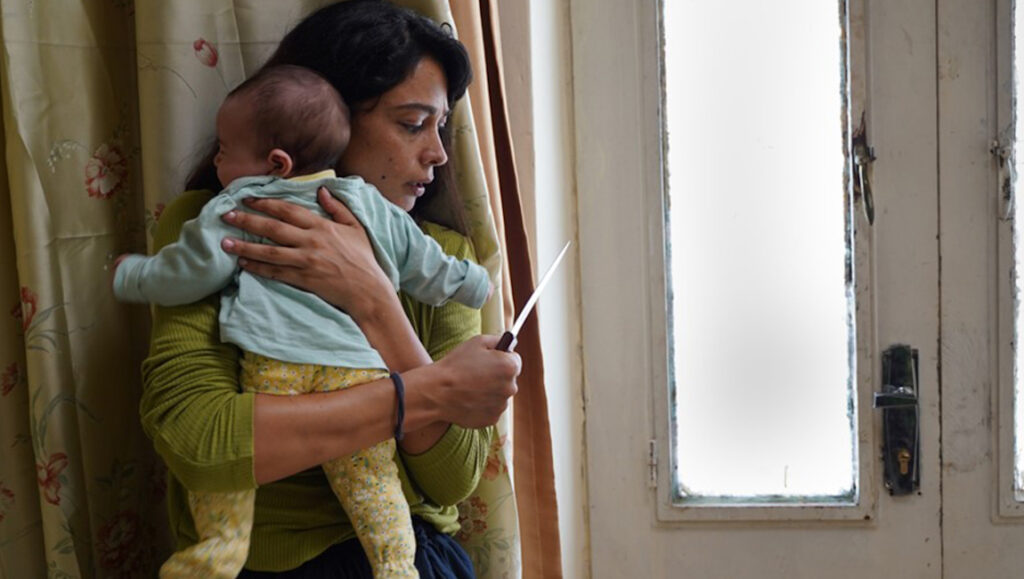Huda’s Salon uses genre trappings as a pretext to gesture at loose connections to reality rather than meaningfully developing anything.
The crucial difference between a genre craftsman and a filmmaker merely checking in and out of a thriller mode might be seen in the emphasis Hany Abu-Assad places on the photographic blackmail that sets off Huda’s Salon. Clearly, these exploitative pictures, which incriminate, violate, and coerce a series of women who imagine themselves entering the caring space of a salon, set the film’s plot into motion. Abu-Assad stages an exemplary scene of this to open the film, and follows it up with several cleverly choreographed long-takes before settling into a split narrative: the blackmailer Huda (Manal Awad), captured and interrogated, on one side, and her victim Reem (Maisa Abd Elhadi), paranoid and motivated in conflicting directions, on the other.
Each of them also has their shadowy, male doubles: Reem’s husband Yousef (Jalal Masarwa), the first to suspect she has something to hide, and Huda’s capturer Hasan (Ali Suliman), who orders a small group of the Palestinian resistance. Abu-Assad also has the panoptic presence of the Israeli secret service to work with: not only as part of the social reality background that his characters live in, but as a contact Reem could activate if she were to collaborate — this is the real intent behind Huda’s operation, and what the blackmail guards against. What Abu-Assad has, then, are forces that he can arrange to converge and recombine; yet he varies Reem’s emotional state based on the status of her blackmail, and surrounds Huda with these proofs of her betrayal. Abu-Assad would have it where a MacGuffin not only rarely leaves the frame, but only enables excursions into abstract ideas (the inequality of the sexes in married life) or typical evenhandedness (he sides with neither the resistance nor the collaborationists, regarding both at an incorruptible distance), rather than action between his well-developed characters: just as Reem is pressed into an impossible corner, the film contrives an ending. Or, you could say that Reem is offered an ending, and chooses to believe it.
Huda’s Salon is a return to Palestinian contexts for Abu-Assad, after the Hollywood tour of The Mountain Between Us. “You can learn a lot from getting closer to the dominant cinema industry,” he said at the time. It would seem that, if anything, this proximity has only encouraged a certain kind of carelessness in Abu-Assad’s cinema, one where genre is merely a pretext to gesture at loose connections to reality rather than the particulars of characters and their events.
Originally published as part of TIFF 2021 — Dispatch 3.


Comments are closed.